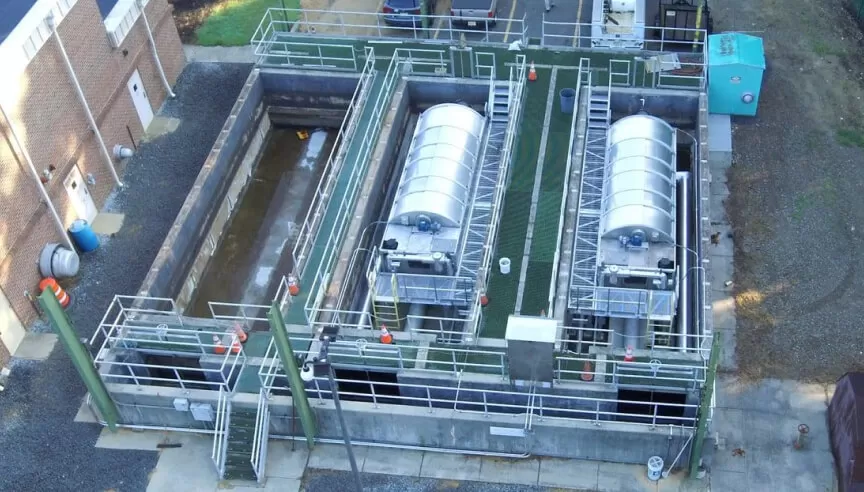Recent Posts
Exploring Disk Filters for Tertiary Fine Wastewater Treatment

Enhancing Water Quality: Exploring Disk Filters for Tertiary Fine Wastewater Treatment
In the pursuit of sustainable water management, wastewater treatment plays a crucial role in preserving water quality and protecting ecosystems. Tertiary treatment, the final stage in the wastewater treatment process, aims to further purify effluent before its discharge into the environment. Among the various technologies employed for tertiary treatment, disk filters have emerged as efficient and reliable solutions for removing fine particulate matter and suspended solids. In this article, we delve into the workings, advantages, and applications of disk filters in tertiary fine wastewater treatment.
Understanding Disk Filters:
Disk filters, also known as microscreen filters or microstrainers, utilize a rotating disk mechanism to capture suspended solids and fine particulate matter from wastewater. These filters consist of a series of closely spaced disks mounted on a central shaft within a filter tank. As wastewater flows through the filter, suspended solids are trapped on the surface of the rotating disks, while clarified effluent passes through and exits the system.
Working Principle:
The operation of disk filters relies on several key principles:
- Filtration:
Wastewater enters the filter tank and flows through the gaps between the rotating disks. Suspended solids and fine particles larger than the gaps become trapped on the surface of the disks, forming a filter cake. - Rotation:
The disks rotate continuously, ensuring that the entire surface area is utilized for filtration. As the filter cake builds up, the rotational movement helps prevent clogging and maintains consistent filtration efficiency. - Backwashing:
Periodically, the direction of flow is reversed, and clean water is used to backwash the filter disks. This dislodges the trapped solids and flushes them out of the system, allowing the filter to continue operating efficiently.
Advantages of Disk Filters:
Disk filters offer several advantages for tertiary fine wastewater treatment:
- High Efficiency:
Disk filters are capable of removing fine particulate matter and suspended solids with high efficiency, resulting in excellent water quality. - Compact Design:
Compared to other filtration systems, disk filters have a compact footprint, making them suitable for installations where space is limited. - Low Maintenance:
The automated operation and self-cleaning capabilities of disk filters reduce the need for manual intervention and maintenance, resulting in lower operating costs. - Flexibility:
Disk filters can be easily integrated into existing wastewater treatment plants or used as standalone units, providing flexibility in system design and configuration.
Applications:
Disk filters find applications in various industries and wastewater treatment scenarios, including:
- Municipal Wastewater Treatment Plants:
Disk filters are commonly used in municipal wastewater treatment plants for tertiary filtration before effluent discharge into receiving water bodies. - Industrial Wastewater Treatment:
Industries such as food and beverage, pulp and paper, and textiles utilize disk filters to remove suspended solids and contaminants from their wastewater streams. - Water Reuse and Recycling:
In water reuse applications, disk filters play a crucial role in producing high-quality reclaimed water for irrigation, industrial processes, and other non-potable uses.
Conclusion:
Disk filters offer an efficient and reliable solution for tertiary fine wastewater treatment, contributing to the preservation of water quality and environmental sustainability. With their high filtration efficiency, compact design, and low maintenance requirements, disk filters are increasingly becoming the filtration technology of choice for various industries and wastewater treatment applications. As the demand for clean water continues to rise, disk filters will play an essential role in ensuring the responsible management of water resources for future generations.
